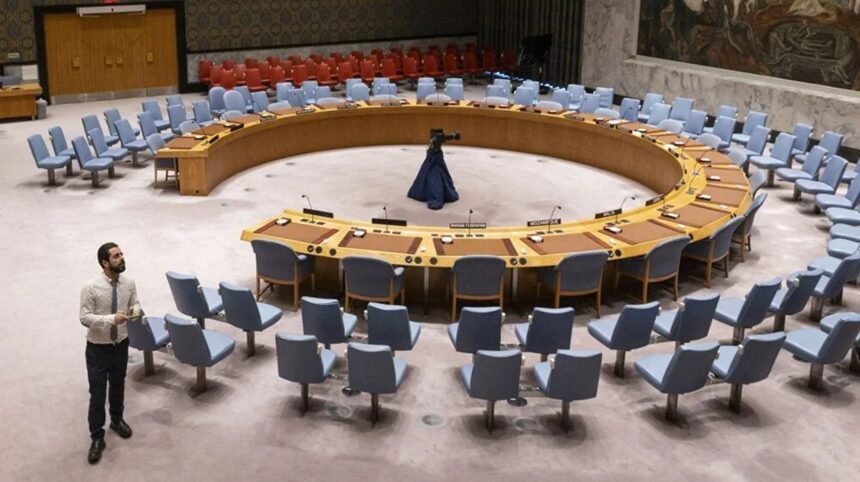At the United Nations Security Council session on Bosnia and Herzegovina, Serbia once again assumed its favorite role — that of the regional peace lecturer — as its chargé d’affaires Radomir Ilić delivered a speech full of polished diplomatic phrases about “stability,” “respect,” and “sovereignty.”
Yes, the same Serbia that continues to flirt with Republika Srpska’s separatist ambitions and whose officials never miss an opportunity to defend Milorad Dodik, the man openly threatening Bosnia’s unity, is now presenting itself as a guardian of the Dayton Agreement.
Ilić confidently told the Council that “relations with Bosnia and Herzegovina are one of the foundations of regional stability and prosperity for Serbia.” An admirable statement, especially from a government that has spent years nurturing political, financial, and media networks across Bosnia that do precisely the opposite.
He reaffirmed Serbia’s “support for Bosnia and Herzegovina as one country with two entities and three constituent peoples,” while — without a hint of irony — warning against “solutions imposed from outside.” It seems that when Belgrade influences politics in Republika Srpska, it is called “cooperation,” but when the international community intervenes to defend Bosnia’s constitution, it suddenly becomes “foreign imposition.”
In his address, Ilić lamented that the Office of the High Representative (OHR) had, in his words, “replaced democratic legitimacy with political imposition” and even claimed it led to “the overthrow of the legitimately elected president of Republika Srpska.” No mention, of course, of the fact that Dodik’s “legitimacy” is increasingly based on defying Bosnia’s state institutions, attacking the judiciary, and pushing secessionist rhetoric that directly violates the Dayton framework Serbia claims to defend.
The speech reached new heights of irony when Ilić accused “political actors in Sarajevo” of wanting to “create a unitary state,” calling it “neither democratic nor sustainable.” For observers familiar with Serbia’s own political landscape — a country effectively controlled by one party, one leader, and a shrinking space for opposition — the sermon on democracy sounded almost like parody.
Not content with that, Ilić also took aim at Željko Komšić, the Croatian member of Bosnia’s Presidency, claiming he was elected “by Bosniak votes.” The comment quickly provoked a sharp response from Bosnia’s UN ambassador Zlatko Lagumdžija, who reminded his Serbian colleague that the Presidency is elected by the citizens of Bosnia and Herzegovina, not by the preferences of officials from neighboring countries who seem to believe they have veto power over Bosnian democracy.
While Ilić spoke of “respecting Bosnia’s sovereignty,” Serbia’s political behavior continues to tell a different story — one of constant interference, double standards, and selective respect for international law. The rhetoric of “dialogue” and “consensus” serves as diplomatic camouflage for policies that quietly enable Republika Srpska’s separatist drift, destabilizing Bosnia while maintaining the façade of peace.
It seems that for Belgrade, “regional stability” means keeping neighbors weak, divided, and dependent, all while projecting an image of responsibility before the international community. And if anyone dares to point that out — well, that’s simply “undermining good neighborly relations.”







